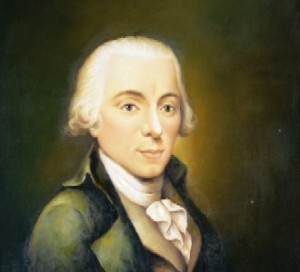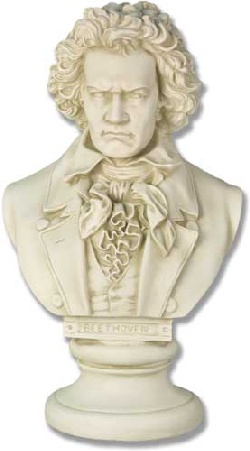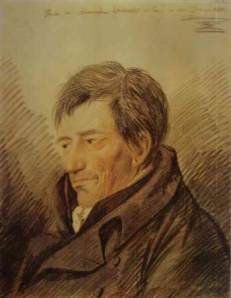Archive for December 2008
Muzio Clementi was born in Rome in 1752, which happened to be the Classical era of Classical music. The eldest of seven children, he had become the organist in the local church by age 13.
Clementi is not quite your average composer (but then, composers aren’t quite average are they?), for his talent drew the attention of one Peter Beckford – cousin to the English writer and dilettante William Beckford – and around 1766, Beckford “bought Clementi off his father for seven years”. Yes, bought.
In late 1766, Beckford returned to England with his purchase. In Beckford’s house in Dorset, Clementi set out to study and practice the harpsichord. After his apprenticeship of seven years was over in 1774, he moved to London and played in more and more concerts as an organist. From there, his popularity grew quickly, especially after he published his Op 2. in 1779.
Optimistic and encouraged, he set out on a tour abroad. A notice in London reported that Clementi was received with much enthusiasm in Paris—a notice perhaps provided by Clementi himself.
Having played for Marie Antoinette with great success, he was reportedly astonished at the ‘gentle and cool approbation given by the English’. He later played for Marie Antoinette’s brother, Emperor Joseph II, in Vienna and it was there that the famous pianoforte (a baroque piano) contest, initiated by Joseph II, with Wolfgang Amadeus Mozart took place.

Muzio Clementi
Clementi played well, but he did not win the competition. Mozart was a tough challenger, and until then, Clementi had been self-taught on the harpsichord, and this was his first encounter with the pianoforte.
Later in Clementi’s career, he was called Mozart’s arch-rival but Clementi never quite took Mozart to be his rival for he greatly admired Mozart, a feeling that was not returned, as this letter from Mozart to Clementi’s father illustrates: “Clementi plays well, as far as execution with the right hand goes. His greatest strength lies in his passages in 3rds. Apart from that, he has not a kreuzer’s worth of taste or feeling – in short he is a mere mechanicus.” (Mechanicus is the Latin word for robot).
In fact, Mozart even went as far as to say that “Clementi is a charlatan, like all Italians. He marks a piece presto but plays only allegro.” Prejudiced or not, Clementi’s B-Flat Major sonata captured Mozart’s imagination, and ten years later in 1791, Mozart used it in the overture to his opera Die Zauberflöte (The Magic Flute). This made Clementi rather resentful, and he made sure a note was included in each publication saying the overture was composed ten years before Mozart began writing Die Zauberflöte.
Clementi’s admiration of and devotion to Mozart, which was not very much reciprocated, is evident from the amount of transcriptions he made of Mozart’s music. Among them is a piano solo for the overture to Die Zauberflöte.
Clementi stayed in England for 20 years, starting 1782—teaching, conducting and playing the piano. Two of his students grew to be fairly famous—Johann Baptist Cramer and John Field, with the latter later becoming a major influence on Frédéric Chopin.
But not everyone was as disapproving of Clementi as Mozart. Ludwig van Beethoven was one of his greatest admirers and in 1807, Clementi struck a deal with Beethoven. Clementi now had full rights to publish Beethoven’s compositions in England.
In addition to playing the piano, teaching and conducting, Clementi began manufacturing pianos. However, in the same year that the deal for publication rights was struck with Beethoven, Clementi’s piano factory burned down. In spite of this, he continued making pianos.
In 1813, Clementi and a group of prominent professional musicians in London founded the “Philharmonic Society of London”, which became the Royal Philharmonic Society in 1912. It is still around today, and their Gold Medal for outstanding musicianship is still being awarded, although rarely. By 2008, it had been awarded to fewer than a hundred musicians. Interestingly, the medal has a profile of a bust of Beethoven on it.

A Bust Of Beethoven
In 1830, Clementi, who was married three times, moved to outside of Lichfield, England and spent his final, less exciting years in Evesham. He died on 10 March 1832 and was buried at Westminster Abbey. Despite some criticism for ‘correcting’ harmonics in Beethoven’s music when he published them and other, more personal ones; his music lives on in musicians all over the world.

An Older, Perhaps Wiser Clementi